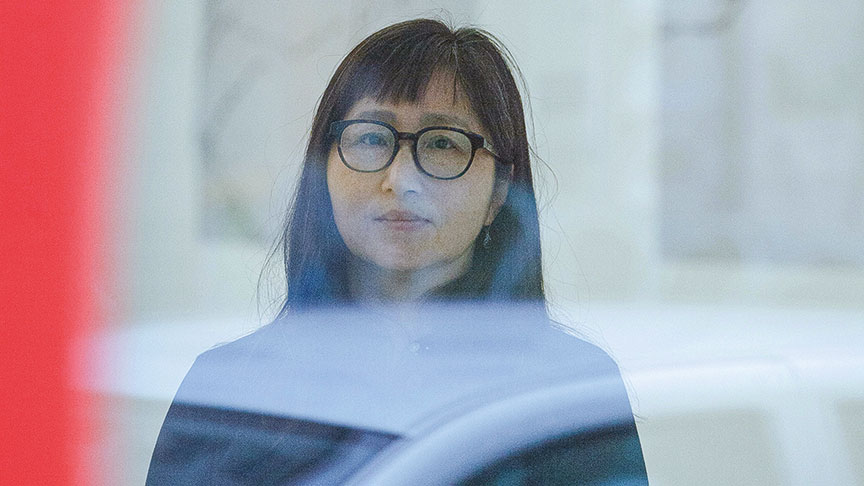Interview: Judith Reker
Mission: To remember
The award-winning Korean-American poet and translator Don Mee Choi talks about sanctioned amnesia and a moving example of remembrance culture.
Ms Choi, describing what you do, you once said: “the question I often ask myself is, does my art perpetuate historical oblivion?”
Choi: I ask myself that question just to make sure that I don’t deviate from my mission, which is to remember. It’s a way of reminding myself that what I am supposed to be doing is remembering what has been suppressed and what is intentionally forgotten. I ask myself whether I am meeting my purpose.
Has this purpose always been so clear to you?
Choi: No, I was lost for many years. When I graduated at 25 with a master’s in fine art, I really was not sure what I was going to do. It took me about ten years during which I really struggled. I did not know what to do, how to live, how to support myself, and what kind of art I was going to pursue. During that time, I started reading in Korean again and encountered contemporary feminist women’s poetry. I thought this is the kind of voice that I want to make more visible in English in the US, because they just broke through prescribed language for women. Translating their work really helped me because I had to research the history of Korea to understand their work in the context of what had taken place.
And as I delved into the contemporary history of Korea, I started to think about how my life has also been so shaped by it and by what my father had witnessed through his lifetime. And then I realised how much of my life had been shaped by wars and the military. That was when it became clear that this is what I wanted to write about.
In your poetry collection “Hardly War” you concisely summarise the philosophy of your writing as “geopolitical poetics. It involves disobeying history, severing its ties to power.” You also speak truth to power in your essays and in discussions. For instance, you have said that without US consent, the massacre of Gwangju in 1980 – when many protesters for freedom and democracy were brutally killed and injured by the South Korean military – could not have happened. How are violent events such as this actually remembered in the US and South Korea?
Choi: Very few people know what kind of US intervention took place in Korea. The almost official term here in the US for the Korean War is “the forgotten war”. It is a kind of sanctioned amnesia, there is no remembrance culture in the US. I would say the same applies to South Korea. There is no place where you can say, this is where the massacre happened. On the war, the official narrative is that we were saved by the Americans, but we were never taught that we were divided by the Americans.
“When I was in Germany, I was thinking this memory of East Germany was not constructed by East Germans.”
You have spent some time in Germany, as a resident of the DAAD Artists-in-Berlin Program, and as a Picador guest professor for literature in Leipzig. Have you had any personal experiences with German remembrance culture?
Choi: If we are speaking about memory in general, I noticed in Berlin that the perspective on East Germany is very much from the point of view of West Germany. There is the Spy Museum, the Stasi Museum, you can learn about the history of the Stasi and so on. And I think it is good that we get to see all that but to me it also falls so easily into that anti-communist ideology which was global. And I find that problematic. So, when I was in Germany I was thinking this memory of East Germany was not constructed by East Germans.
I feel moved every time I see these little brass squares called “Stolpersteine”, stumbling stones, that commemorate the Holocaust in German cities. It took me a long time to notice them. But once I learned how to see them, I saw them everywhere. The first time, I was reminded of a line in a poem that I translated by the Korean poet Kim Hyesoon: “they are like the stars that can’t be seen in daylight”. To me the Stolpersteine were like the stars that you can’t see in daytime. And like the stars, they are the light from the past. The light that reaches us. But which takes time to do so. —


